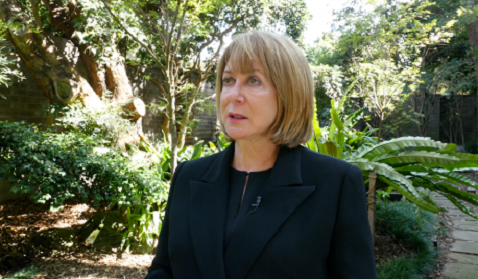An Australia-wide network of mass immunisation centres, supported by local government, could get the nation’s flagging Covid-19 vaccine program back on track.
University of NSW epidemiologist Mary-Louise McLaws, pictured, said this week that vaccinations would need to be stepped up significantly if most of the adult population is to receive at least one shot by October.
In early April, Professor McLaws calculated that 133,000 vaccinations would need to be administered each day if 85 percent of the population is to be vaccinated by the end of the year.
However, more recent number-crunching showed the daily vaccination rate would have to rise to between 170,000 to 199,000 to meet the target.
National Cabinet met last Friday and agreed to revise the vaccination strategy, including bringing forward the start of vaccinations for people aged over 50 and opening more state-run vaccination sites, including mass vaccination facilities.
Professor McLaws said mass vaccination centres will be critical to meeting the new timetable, with the requirement to give different vaccines to two different population groups complicating matters.
“Councils have an excellent grasp of the demographics of their local government areas and can play a key role in generally raising public awareness about which group gets which vaccine, and where,” she said.
“Local government can also provide spaces that are suitable for mass vaccinations and which can accommodate physical distancing requirements.”
Professor McLaws pointed to the challenges of ensuring low socioeconomic groups are also included in the vaccination program, saying this was an emerging issue in countries like Israel and the United Kingdom, where Covid vaccination rates are high.
“Many homeless, marginalised or unemployed people might be reluctant to turn up at mass vaccination clinics,” she said.
“Local government is not only well placed to identify and connect with these groups, but they can also overcome any hesitancy about vaccinations by providing, for example, vans or pop-up facilities where jabs could be administered along with hot meals or drinks.”
Professor McLaws, who is also an Advisor to the World Health Organization, will be speaking at the Australian Local Government Association’s National General Assembly in June.
She will discuss how the program can be implemented to meet end-of-year targets, how to ensure it is finished by May or June of next year, and how mass vaccination facilities need to be part of the solution.
The registration brochure detailing the NGA program, speakers, and social events is now being mailed out to local governments around the country.



